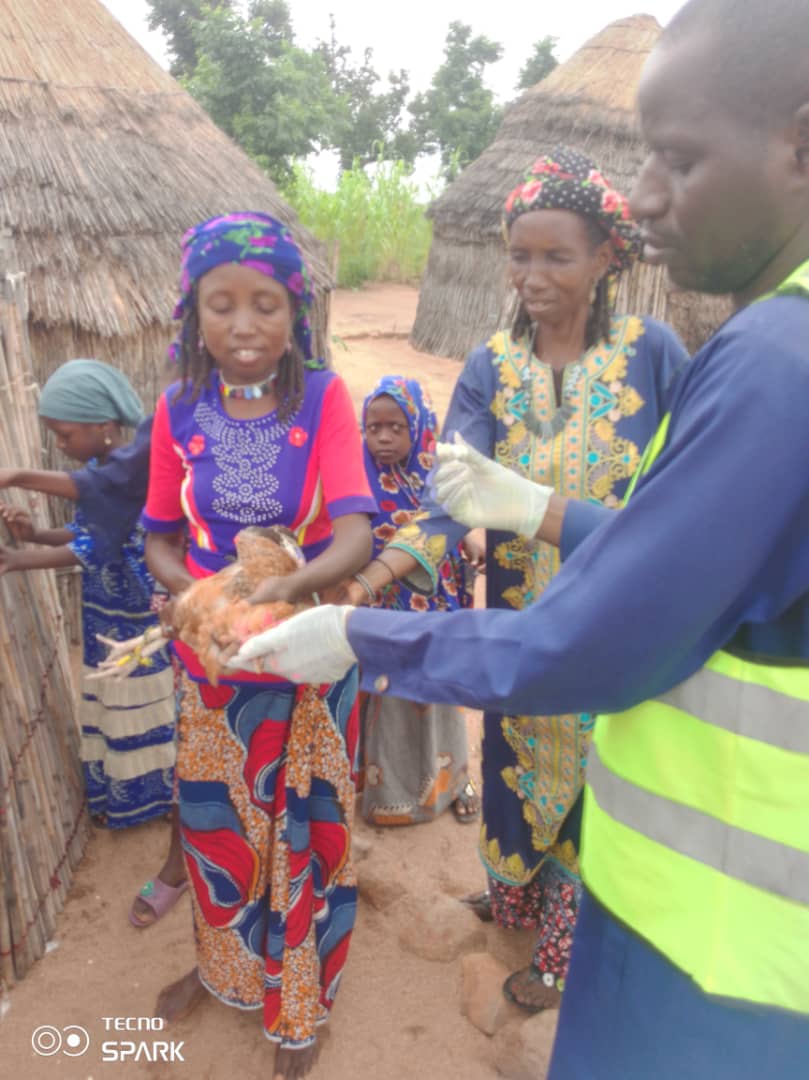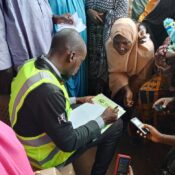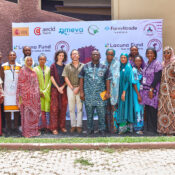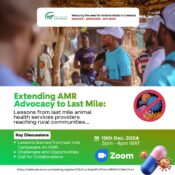
Empowering Rural Resilience: The Impact of Livestock Climate-Smart Practices in Northeastern Nigeria

In rural northeastern Nigeria, backyard livestock farming is not just a way of life for women but a cornerstone of the local economy, providing income, nutrition, and employment.
However, these women face numerous challenges, including climate vulnerability, insecurity, and limited access to resources. These obstacles have hindered its growth potential, prompting concerted efforts to revitalize pastoralist ventures and improve the well-being of rural communities.
One major obstacle has been the prevalence of diseases among livestock, exacerbated by the lack of access to last mile animal health services in remote areas.
Recognizing this critical need to build climate resilience, particularly in hard-to-reach regions, a comprehensive livestock climate-smart practice program was launched in Taraba state. This project targeted the promotion of climate smart practices and encouraging livestock vaccination against prevalent diseases such as Peste des Petits Ruminants (PPR) and Newcastle Disease Virus (NCDV) in small ruminants and poultry respectively aiming to bolster the health and resilience of the region’s livestock.
Abubakar Aliyu, hailing from the Karimo Lamido Local Government Area, was one of the veterinary para-professionals trained to deliver capacity building training to women on climate smart Poultry production and also support a vaccination campaign in his community during the project.
As a key figure in the vaccination campaign, Aliyu played a pivotal role in sensitizing local livestock owners and facilitating the vaccination of thousands of animals. His outreach efforts extended beyond just poultry farmers to farmers that kept small ruminants, creating awareness on the importance of vaccination.
The impact of the vaccination was profound, dispelling myths and improving awareness among rural communities. By vaccinating poultry and small ruminants , Aliyu demonstrated the effectiveness of preventive measures and vaccination against PPR and NCDV.
During the 2 months campaign, Aliyu was able to vaccinate 586 chickens, 2,633 sheep’s and 2,150 goats in total.
Moreover, the use of thermostable vaccines like Ndi2 for NCDV which had no need for cold chain storage and giving him vaccine carrier as microcredit gave his the ability to vaccinate in very remote locations with ease.
Aliyu is just one of the success stories of the 20 Para-professionals engaged in this project that carried out the campaign, in Taraba state across 22 communities, significantly improving the health and vitality of the local livestock population. The success of the initiative not only safeguarded the livelihoods of smallholder farmers but also contributed to overall economic stability and climate resilience in the region.
By addressing the root causes of livestock diseases and empowering rural communities with knowledge and resources, the Climate-smart practice program exemplified a sustainable approach to enhancing rural livelihoods and fostering resilience in the face of challenges.
+2348130555674
alliance4livestock@gmail.com



